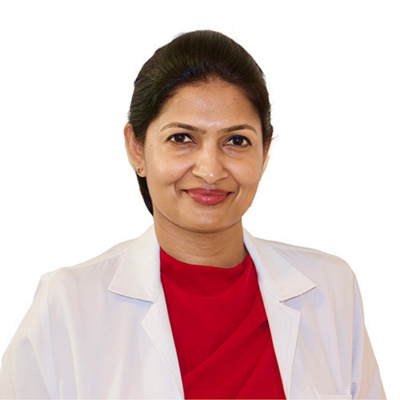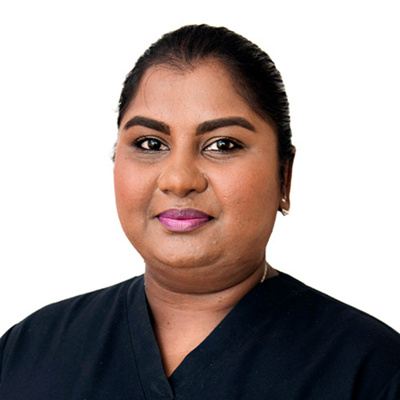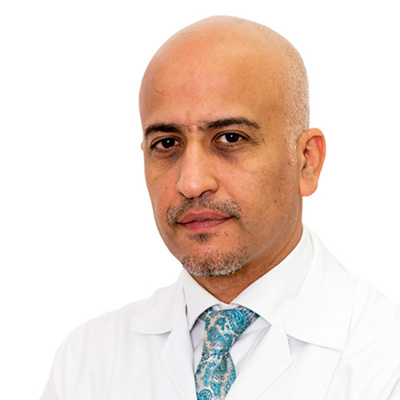The Endometriosis clinic manages the care and treatment of adolescents, young adults, and adult women with endometriosis. Services include medical and surgical management of endometriosis, pain treatment services, and fertility management.
Mediclinic's expert team at Mediclinic Welcare Hospital's Multidisciplinary Endometriosis Unit is dedicated to addressing the challenges of endometriosis, providing comprehensive care from painful periods to pelvic pain and infertility.
Our team of expert professionals include:
- Minimally invasive surgeons
- Colorectal surgeons
- Urologists
- Reproductive specialist
- Pain management specialist
- Pelvic floor physiotherapy
Endometriosis symptoms
- Painful periods
- Pelvic pain
- Pain during/after intimacy
- Bladder pain
- Infertility
- Constipation/diarrhea with periods
Frequently Asked Questions (FAQ)
What causes endometriosis?
Endometriosis' exact cause remains unclear, with theories proposing retrograde menstruation as one likely contributor, where menstrual blood with endometrial cells flows backward into the pelvis. Genetic factors are also implicated, as endometriosis often runs in families, and hormones, particularly estrogen, can promote its growth. Immune system dysfunction and environmental influences may further play roles in the condition's development, suggesting a multifactorial origin. Further research is needed to fully comprehend endometriosis' underlying causes for improved treatment and prevention strategies
Can endometriosis come back after treatment?
Yes, endometriosis can return even after surgery. The chance of it coming back depends on things like how severe the endometriosis was, how much of it was removed during surgery, and the person's age. Sometimes, after surgery, doctors might give hormonal medicine to help stop it from coming back too soon.
Can endometriosis be cured?
Endometriosis can't be cured completely, but its symptoms can often be managed well with treatments like medication, surgery, or a mix of both.
Does endometriosis cause infertility?
Endometriosis might make it harder for some people to get pregnant by causing scars, inflammation, or blocking their fallopian tubes. But not everyone with endometriosis has trouble getting pregnant, and many can still have babies with the right treatment and support.
Is it common for teenagers to have endometriosis?
Endometriosis in teens isn't usual but can happen. Though it's more common in people aged late teens to early 40s, it can sometimes start during teenage years. It's tricky to know the exact number of teens affected because sometimes people think severe period pain is normal for teens. When teens have endometriosis, they might have really bad pelvic pain, painful periods, and stomach troubles. Finding it early and treating it can make a big difference in their life.
How can I prevent endometriosis?
Right now, there's no sure way to stop endometriosis from developing. But living healthy, managing stress, and seeing a doctor quickly if you have symptoms can help to diagnose and treat disease early.
Can menopause make endometriosis go away?
Menopause can help with endometriosis symptoms because it lowers estrogen, which makes endometriosis grow. But it doesn't cure it completely. Even after menopause, endometriosis can still be there.
Can Endometriosis cause gastrointestinal symptoms?
Yes, endometriosis can lead to gastrointestinal symptoms like abdominal pain, bloating, constipation, diarrhea, and discomfort during bowel movements. These symptoms often occur when endometriosis affects the intestines or other pelvic organs. In some cases, patients with these symptoms may initially be misdiagnosed and treated for conditions like irritable bowel disease. If you're experiencing such symptoms, especially if they worsen during your menstrual period and coincide with painful periods, it's advisable to consult with an endometriosis specialist for a thorough evaluation.
How can endometriosis damage your kidneys?
Endometriosis typically doesn't directly harm the kidneys, but it can induce significant pelvic inflammation and scarring. In some cases, this scarring may cause ureteral obstruction in the pelvic area, potentially resulting in kidney damage. Shockingly, around 40% of such cases remain undiagnosed until kidney damage becomes evident. Therefore, when evaluating endometriosis, particularly in preparation for surgical excision, it's crucial to assess the condition of the kidney and ureter. Failure to detect and address these lesions during surgery can increase the risk of future kidney damage. It's essential to manage endometriosis promptly and correctly to minimize the risk of such complications.
What is the difference between endometriosis and Adenomyosis?
Endometriosis involves tissue similar to the uterine lining growing outside the uterus, causing pain and inflammation. Adenomyosis, on the other hand, is when endometrial tissue grows into the muscular wall of the uterus itself, leading to uterine enlargement, heavy menstrual bleeding, and pain. They are distinct conditions but can coexist in some cases.
Can Endometriosis and fibroid can be together?
Yes, it's possible for endometriosis and uterine fibroids to coexist in the same individual. Both conditions can cause pelvic pain and other symptoms, and their management may require a comprehensive approach tailored to the patient's specific needs.
Can Pregnancy cure endometriosis?
Pregnancy can temporarily alleviate endometriosis symptoms for some individuals, but it is not a guaranteed cure. Some women experience symptom relief during pregnancy due to hormonal changes, but endometriosis may return after childbirth or when hormonal fluctuations normalize.
Does diet help in Endometriosis?
Some women with endometriosis find relief from symptoms by making dietary changes, such as reducing inflammatory foods and incorporating anti-inflammatory nutrients. While diet can be a helpful part of managing symptoms, it should be combined with other medical treatments as needed.
What are the stages of endometriosis?
Endometriosis is categorized into four stages (Stage I to IV) based on the extent and severity of the disease. These stages help describe how deep and widespread the endometrial tissue has invaded pelvic structures. The stage can influence treatment decisions and prognosis
Endometriosis Surgery is it complicated?
The complexity of endometriosis surgery can vary based on several factors, including the disease's extent, lesion locations, and the selected surgical method. Laparoscopic surgery, a minimally invasive approach, is often used for endometriosis, but the level of complexity may rise if there are extensive adhesions or deep tissue involvement. Your endometriosis surgeon will typically assess the extent of the disease through diagnostic imaging, discuss the surgical plan, and inform you about anticipated risks and complications, providing a clear picture of the procedure's complexity.
Why should I seek treatment from an endometriosis specialist and a center with a multidisciplinary team?
Getting treatment from an endometriosis specialist and a center with a multidisciplinary team is crucial because they have the expertise and resources to provide comprehensive care tailored to your specific needs. Specialists understand the complexities of endometriosis and can appropriate treatments, while a multidisciplinary team ensures you receive holistic care addressing various aspects of the condition, leading to better outcomes, improved quality of life and delayed recurrence.






